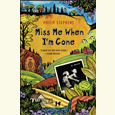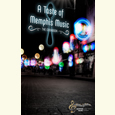Protecting What We Love
This Is How a Robin Drinks makes the case for urban nature
Despite its many parks and greenspaces, Nashville is not likely to come to mind when listing places where nature flourishes. More concrete than chrysalis, urban landscapes have much to offer, but attention to the natural world is not the norm. Knowing this, Nashville resident and naturalist Joanna Brichetto defends her urban home, arguing it is a perfect spot to fall in love with the wonder of insects, birds, trees, and plants. If she’s the attorney in this case, consider her book This is How a Robin Drinks: Essays on Urban Nature a powerful opening statement.
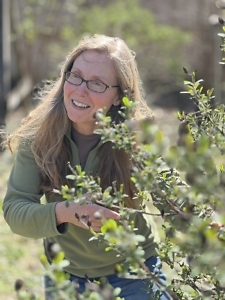 In the preface, Brichetto explains her thesis: “Nature is right outside our door, and here’s what I’ve learned: nature is the door too, and what’s on the inside.” She goes on to list ordinary parts of any city dweller’s life: “Nature is moss on brick where gutters spill, a sycamore sprout in the storm drain. … Nature is a full moon over the electric substation, as viewed from a bridge on the interstate.” Too often, we think of nature as a place we visit — a hike in the mountains or a dip in an icy stream, but Brichetto insists our feet get just as wet in puddles on the driveway, and that, too, is worthy of our attention.
In the preface, Brichetto explains her thesis: “Nature is right outside our door, and here’s what I’ve learned: nature is the door too, and what’s on the inside.” She goes on to list ordinary parts of any city dweller’s life: “Nature is moss on brick where gutters spill, a sycamore sprout in the storm drain. … Nature is a full moon over the electric substation, as viewed from a bridge on the interstate.” Too often, we think of nature as a place we visit — a hike in the mountains or a dip in an icy stream, but Brichetto insists our feet get just as wet in puddles on the driveway, and that, too, is worthy of our attention.
The idea of paying attention has a long lineage among nature writers, and Brichetto calls upon many of them, from Aldo Leopold to Annie Dillard. Those of us who love wild things revere these names and their wisdom, turning to them for reminders of what’s really important. Like those wise voices, Brichetto invites us to wonder:
Not just the gobsmacked astonishment kind of wonder, but wonder as in to ponder, to question. Both kinds of wonder lead to connect, which leads to love, which leads to protect. We can’t protect what we don’t love, and we can’t love what we haven’t met, and we can’t meet what is always someplace else, where many of us think nature stays.
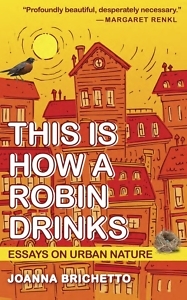 Instead, she focuses her attention on those things that surround her Nashville home, both the personal and the communal. In “Walking Onions,” she describes the “muddy bouquet in a sack unasked for, unexplained” her mother delivered, which eventually overtook her garden. “Paradise in a Parking Lot” surveys a vacant lot in her neighborhood. There, she explains, “I hunt for marvels that tolerate intolerable conditions: nostoc at the elevator shaft, moss on what’s left of the lobby, asters in the cracks.” In this essay, she acknowledges the danger of celebrating parking lots, concerned lest people think she’s calling for more concrete, “or that I don’t realize our world is burning quicker than we can put out the fire.” Instead, she insists — and you can almost hear the lump in her throat as she does so: “Our world is beautiful as it burns.”
Instead, she focuses her attention on those things that surround her Nashville home, both the personal and the communal. In “Walking Onions,” she describes the “muddy bouquet in a sack unasked for, unexplained” her mother delivered, which eventually overtook her garden. “Paradise in a Parking Lot” surveys a vacant lot in her neighborhood. There, she explains, “I hunt for marvels that tolerate intolerable conditions: nostoc at the elevator shaft, moss on what’s left of the lobby, asters in the cracks.” In this essay, she acknowledges the danger of celebrating parking lots, concerned lest people think she’s calling for more concrete, “or that I don’t realize our world is burning quicker than we can put out the fire.” Instead, she insists — and you can almost hear the lump in her throat as she does so: “Our world is beautiful as it burns.”
Brichetto is at her best when she enters this state of wonder, letting it spill over and onto the page. On those occasions, the joy and enthusiasm are sufficient to draw others near, to urge them to look through her eyes and share her deep love for the world around us. At times, the tone of the collection can tip toward self-congratulatory, leaving the door open for readers to feel judged more than invited. Despite these dips, her commitment to and appreciation of nature wherever it’s found and just as it is, ticks and all, is a breath of fresh air, a beautiful reminder that humanity need not always be the center of things:
Nature is not here just to teach you or cure you or remind you of something about yourself, though you can, of course, learn and heal and remember — which we all desperately need to do — but that’s not why this bee is biting a circle from the redbud leaf, or why the pokeweed is blooming, or why a cottontail is stretching and rolling in the dirt by the porch where rain never reaches.
Those things have their reasons, and even if they remain mysterious for all our days, we are lucky just to observe them. “What joy to witness secrets weird and wonderful. What a big deal to see creatures doing their thing, busy with their own wild and precious lives, oblivious to mine.” What joy indeed. The defense rests.
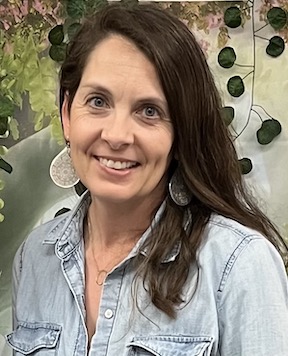
Sara Beth West is a librarian and a freelance writer focusing on book reviews and author interviews. In addition to Chapter 16, publications include Shelf Awareness, BookPage, Southern Review of Books, and more. She lives in Chattanooga.
